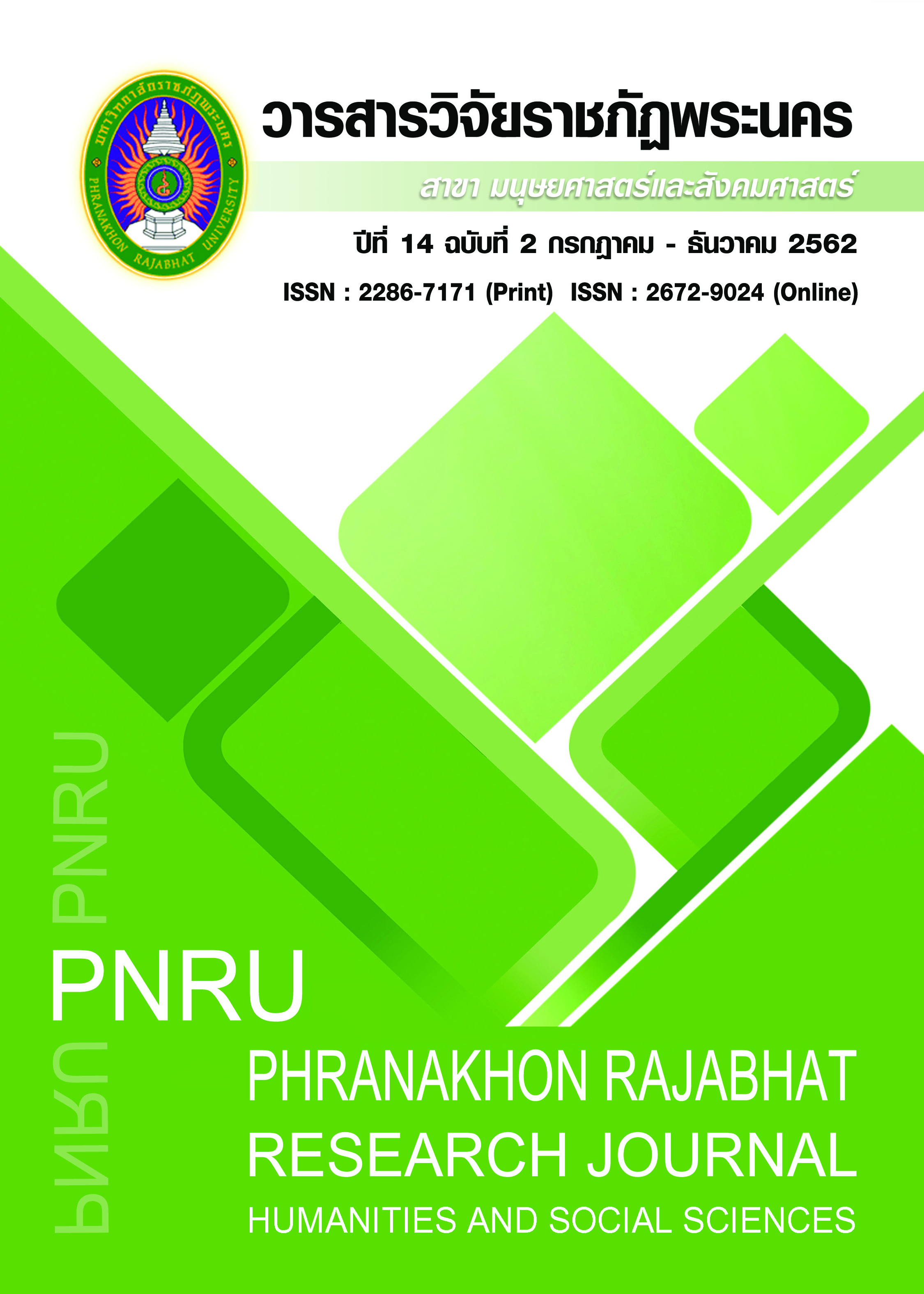A STUDY OF INDICATORS OF THE UNIVERSITIES FOR LOCAL DEVELOPMENT
Main Article Content
Abstract
The university for local development is one universities that has its legally goals, roles, and missions focusing on education, research and social services for local development. This research article is aimed to study the indicators that reflected the characteristics of the universities for local development. It is a research on the development of human capital management model for the universities for local development. The qualitative research method was used to conduct the in-depth interviews with 8 executive administrators including the
presidents or their representatives from the selected Rajabhat universities, 2 universities from each among 4 regions. The findings present the indicators of the universities for local development in 3 aspects: (1) Indicators based on the system approach; there are 8 input, 5 process, 5 output, and 6 outcome indicators. (2) Indicators based on the university missions; there are 13 academic, 17 research, 15 social service, and 13 art and cultural preservative indicators. (3) Indicators on the competencies of faculty staff; there are 20 teaching, 18 research, 18 social service, and 13 art and cultural preservative indicators
Article Details
Each publish articles were copyright by Phranakorn Rajabhat University
Any contents which appeared in each articles in the journal were authors personal opinion. It did not relate to Phranakorn Rajabhat University and other instructors in the university. Each authors would take responsibility on their articles. If there are any mistake, the authors will take responsibility themselves
References
Azma, F. (2010). Qualitative indicators for the evaluation of universities performance. Retrieved September 28, 2018, from https://www.sciencedirect.com/science/article/pii/ S1877042810009225
Boonsong, K. (2008). The development of indicators for local development roles of Phetchaburi Rajabhat University. Journal of Education science. 19(2), 45-58. (in Thai)
Jamaric, S. (2006). Re-engineering Rajabhat to higher education for local development. Retrieved June 13, 2016, from http://www.sanehchamarik.in.th/attachments/ 023_050906.pdf (in Thai)
Jindarak, P. (2017). Competency development for academic staff in high education. Journal of graduate studies Valaya Alongkorn Rajabhat University. 11(1),221-233. (in Thai)
Kanjanawasee, S. (2011). Evaluation theory. 8 th edition. Bangkok : Printing of Chulalongkorn University. (in Thai)
Khammani, T. (2013). Teaching science: knowledge for effective learning process management. 17th edition. Bangkok: Printing of Chulalongkorn University. (in Thai)
Laksana, S. (2001). Rajabhat university challenging missions. Retrieved January 9, 2017, from http://www.moe.go.th/main2/article/duty_dare.htm (in Thai)
Mehta, Arun. C. (2004). Indicators of educational development with focus on elementary education. Retrieved September 8, 2018, from http://www.educationforallinindia.com/New%20Modules/module%20on%20indicators%20of%20educational%20
development.pdf.
Nastasi, Bonnie K. & Schensul, Stephen L. (2005). Contributions of qualitative research to the validity of intervention research. Journal of School Psychology, 43(3), 177-195.
Offi ce of the Counsil of State. (2004). Rajabhat University Act 2004. Retrieved February 17, 2016, from http://www.ratchakitcha.soc.go.th/DATA/PDF/0AA/00141755.PDF. (in thai)
Offi ce of the Permanent Secretary, Ministry of Education. (2009). Educational Indicators and Statistics. Bangkok : Offi ce of Policy and Strategy, Offi ce of the Permanent Secretary, Ministry of Education. (in thai)
Offi ce of the Rector of Rajabhat University. (2017). The new strategy of the Rajabhat University for local development under the King’s 20-year (2017-2036). Bangkok : Offi ce of the Rector of Rajabhat University. (Brochure). (in thai)
Offi ce of the Royal Society. (2013). University. Retrieved April 5, 2017, from http://www.royin. go.th/ (in thai)
Panich, V. (2010). University for local development. Retrieved March 25, 2016, from https:// www.gotoknow.org/posts/337249. (in Thai)
Phongkai, W. (2010). Use of performance indicators (projects). Retrieved September 8, 2018, from http://www2.it.kmutnb.ac.th/FileDL/118255180510.pdf. (in Thai)
Pithiyanuwat, S. (2002). Preparing for quality assessment from Offi ce for National EducationStandards and Quality Assessment. Journal of Academic Krung Kao Rajabhat. 9(16) : 49-61. (in Thai)
Pothisita, C. (2011). Science and Art of qualitative research. 6th edition. Bangkok : Amarin Printing and Publishing. (in Thai)
Prasantree, N. (2016). Lecturer development model for Rattanakosin Rajabhat University. Phranakhon Rajabhat University Research Journal, Humanities and Social Sciences, 11(1), 203-215. (in Thai)
Shavelson, Richard J., McDonnell, Lorraine M. & Oakes, J. (November 1991). What are educational indicators and indicator systems?. Retrieved September 28, 2018, from http://PAREonline.net/getvn.asp?v=2&n=11.
Shiel, C., Filho, W. L., Paco, A. D. & Brandli, L. (2015). Evaluating the engagement of universities in capacity building for sustainable development in local communities. Retrieved September 28, 2018, from http:// www.elsevier.com/locate/evalprogplan
Singhsri, P. (2015). The relationship model between Intellectual Capital, Knowledge Management and Organization Excellence of Thai Higher Education. Journal of graduate studies Valaya Alongkorn Rajabhat University. 9(1),187-203. (in Thai)
Subnirund, R. (2001). Rajabhat University : people’s university. Bangkok : Matichon. (in Thai)
Suwanwela, J. (2008). The independence of universities. Asaihl-Thailand Journal. 11(2),29-49. (in Thai)
Traimongkolkul, P. & Chatraphon, S. (2012). Research Design. 7th edition. Bangkok : Kasetsart University Press. (in Thai)
Wiratchai, N. (2008). “Development of assessment indicators” Academic conference : Open the moral horizon and ethics. 29 August 2008, Bangkok : Ambassador Hotel. (in Thai)
Working Group for United College Development. (1987). University for local development. Bangkok : [n.p.]. (in Thai)


